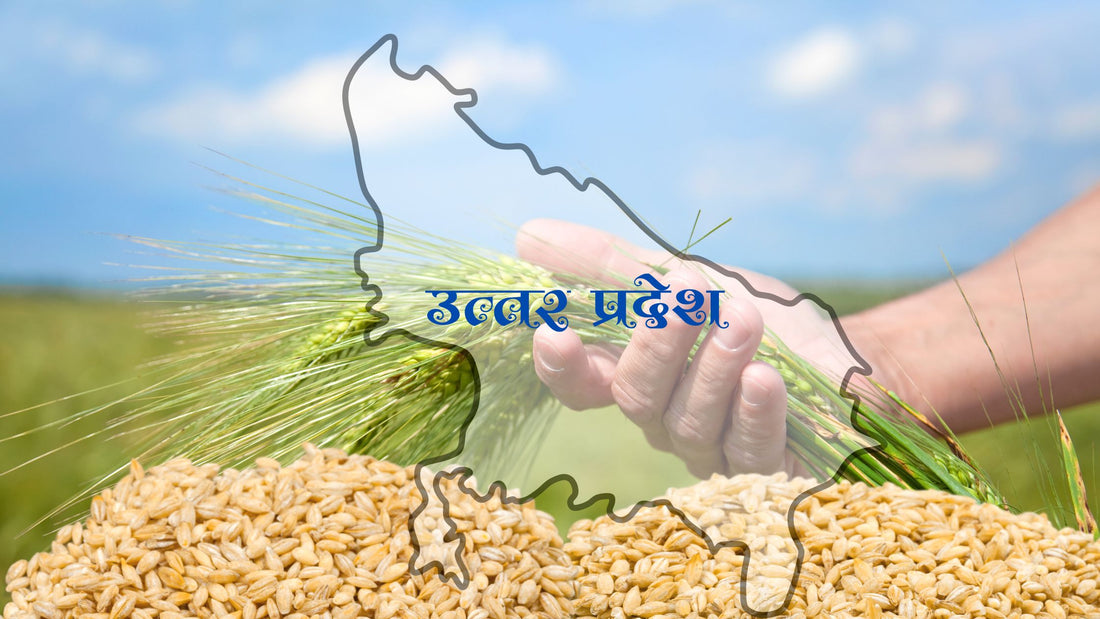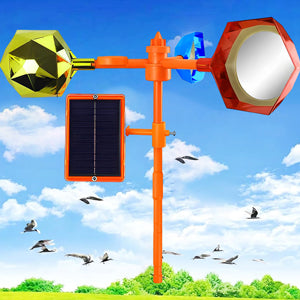
Boosting Wheat Yields in Uttar Pradesh: A Comparative Perspective and Roadmap to Higher Income
Share
Wheat, often referred to as the "golden grain," is the backbone of agriculture in Uttar Pradesh, feeding millions and contributing significantly to the state's economy. While Uttar Pradesh leads India in wheat production, there's always room for improvement. Let's delve into the current scenario, compare it with global benchmarks, and explore strategies to enhance yields and income for farmers in the state.
Uttar Pradesh's Wheat Scenario: A Mixed Bag
Uttar Pradesh proudly holds the top spot in India's wheat production, contributing approximately 30% of the national output. However, when compared to countries leading in wheat yield per hectare, such as the Netherlands and Belgium, there's a noticeable gap. This disparity underscores the potential for Uttar Pradesh's farmers to significantly enhance their productivity.
Global Yield Comparisons: Lessons to Learn
High Yielders: The Netherlands and Belgium consistently achieve impressive yields exceeding 8 tonnes per hectare. Their success is attributed to favorable climate, advanced agricultural practices (precision farming, crop rotation), fertile soils, and robust infrastructure.
India's Position: India's average yield of 3.5 tonnes per hectare, while decent, indicates room for significant improvement.
Uttar Pradesh's Standing: Within India, Uttar Pradesh's yield of 3.69 tonnes per hectare is encouraging but lags behind Punjab and Haryana.
Factors that Enhance Wheat Yields
Climate-smart Varieties: Opt for high-yielding, disease-resistant wheat varieties that are well-suited to Uttar Pradesh's climate. Consult local agricultural experts for recommendations based on your specific micro-climate and soil conditions.
Soil Health Management: Prioritize soil health through practices like crop rotation, cover cropping, and organic manure application. Conduct regular soil testing to identify and address nutrient deficiencies.
Precision Farming: Embrace technologies like GPS-guided machinery, variable rate fertilizer application, and soil moisture sensors to optimize input usage and maximize yield potential.
Efficient Water Management: Adopt water-saving irrigation methods like drip or sprinkler irrigation to ensure crops receive adequate water without wastage.
Timely Sowing and Harvesting: Adhere to recommended sowing and harvesting windows to optimize crop growth and minimize losses.
Integrated Pest and Disease Management: Implement proactive measures to monitor and control pests and diseases using integrated approaches that minimize chemical usage.
Guidelines for Improved Income
Value Addition: Explore opportunities for value addition, such as processing wheat into flour, bread, or other products, to fetch better prices in the market.
Market Linkages: Establish direct connections with buyers or participate in farmer producer organizations to bypass intermediaries and secure fair prices.
Government Schemes: Utilize government schemes and subsidies for seeds, fertilizers, irrigation, and agricultural machinery.
Crop Diversification: Consider diversifying your cropping pattern to include other remunerative crops to reduce risk and enhance income stability.
Skill Development: Participate in training programs to learn about modern agricultural practices and market trends.
Conclusion
Uttar Pradesh's farmers have the potential to significantly boost their wheat yields and income by adopting a combination of climate-smart practices, modern technologies, and sound market strategies. The journey towards higher productivity requires dedication, continuous learning, and collaboration with agricultural experts and fellow farmers. By embracing these strategies, Uttar Pradesh can solidify its position as a leading contributor to India's agricultural prosperity.
Remember, every step towards sustainable and productive farming benefits not only individual farmers but also the state and the nation as a whole










